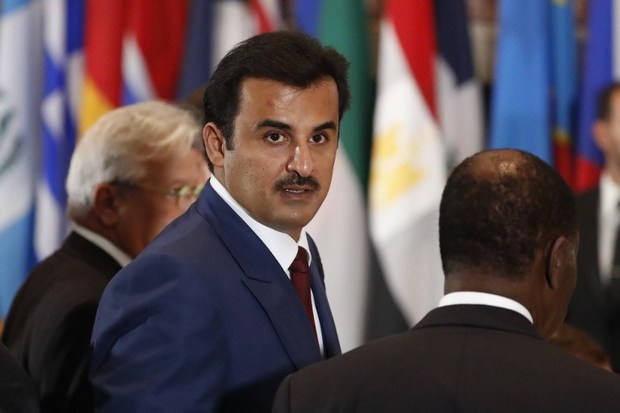
Three Potential Motives behind the Tension between Qatar and its Gulf Neighbours
YemenExtra
Y.A
It’s clear that the hacking of Qatar’s news agency last month was a premeditated assault. Here’s why it happened – and why now
Shortly after the heavy guns of the Emirate and Saudi-controlled media fired their salvo at Qatar, their Gulf neighbor lay in a smoldering ruin, unable to host anyone or anything, let alone a World Cup. At least, that was how they fondly imagined it.
The claims were hysterically inflated: Qatar funded all the terrorists; Qatar could not be allowed to “sabotage the region”; Qatar must choose sides over Iran. Finally, the emir of Qatar was reminded of the fate of Mohamed Morsi.
The threat to topple the head of state of a fellow GCC member was not even made anonymously. It was made by the man whose job it is to represent Saudi interests in the US. Salman al-Ansari, the president of the Saudi American Public Relation Affairs Committee, tweeted: “To the emir of Qatar, regarding your alignment with the extremist government of Iran and your abuse of the Custodian of the two sacred mosques, I would like to remind you that Mohammed Morsi did exactly the same and was then toppled and imprisoned.”
The second motive is a personal one. By launching an attack on Qatar, they aim not only to silence external opposition, but internal forces as well. In Bin Salman’s case, silencing opposition within the royal household is a crucial step he has to make, before he can displace his elder cousin, Mohammed bin Nayef, as crown prince.
By hitching themselves so firmly to Trump’s wagon, Bin Salman and Bin Zayed think they have bought themselves an insurance policy. This, however, depends on Trump completing a full term as president. Not many in Washington who are awaiting the testimony next week of the former FBI director James Comey to the Senate Intelligence Committee, or who are waiting to see how long ambitious Republicans like Senator Paul Ryan will stay loyal, would be so sure.
The third motive for attacking Qatar goes further than that. They could actually want to see Qatar itself disappear as an independent state. This sounds, and is, deranged in the century we are living in. For one thing, Qatar houses the forward command base of US Central Command. That may explain why the UAE is campaigning hard in Washington to move the US base out of Qatar.
But the thinking behind this campaign may have little to do with events happening in this century. A series of tweets have emerged from officially sanctioned bloggers in Riyadh, dragging up events over 100 years old. They dug up the role of the British in selecting the al-Thani family as the chosen rulers of this part of the Arabian peninsula.
Without any intended irony, they ascribe Qatar’s current troubles to the agreement of Mohammed al-Thani made with the British in 1868, which paved the way for the family to impose its political authority over the other tribes.
The Saudi newspaper al Eqtisadiah tweeted that the tradition of transferring power in Qatar was from father to preferred son, rather than from father to eldest son. It further tweeted that 40 percent of the oil revenues were shared out among the al-Thani royal family.
Nor has modern Saudi Arabia overcome its addiction to foreign women. If King Abul Aziz needed the recommendation of Gertrude Bell, it seems that his grandson needed the recommendation of another foreign woman, Ivanka Trump.
The Source : Middle East Eye
